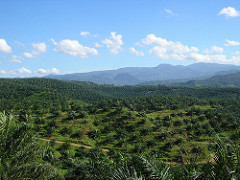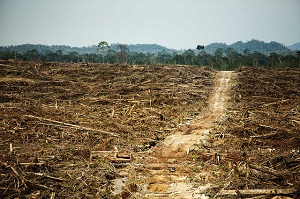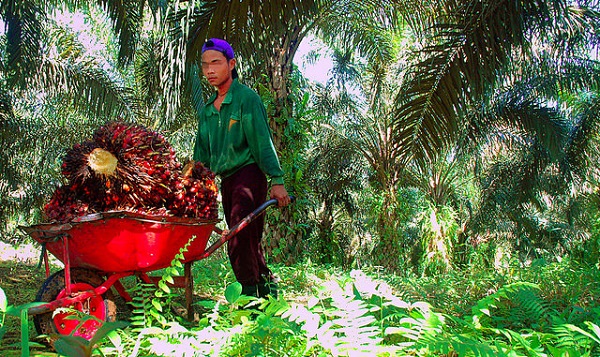ASEAN CSR Network speaks at the 2015 UN Forum on Business & Human Rights
Mr. Thomas Thomas, CEO of ASEAN CSR Network, recently spoke at the 2015 UN Forum on Business & Human Rights held in Geneva from 16-18 November.
The theme of the forum was “Tracking progress and ensuring coherence,” and discussion in the plenary and parallel sessions addressed the theme, taking into account the three pillars of the Guiding Principles:” the State duty to protect against human rights abuses, the corporate responsibility to respect human rights, and the need for access to effective remedy for victims. For more details of the agenda, please click here.
Speakers and panellists came from global organisations such as the Organisation for Economic Co-operation and Development (OECD), UN Development Programme (UNDP), UN Conference on Trade and Development (UNCTAD), World Business Council on Sustainable Development (WBCSD), UN Global Compact (UNGC), International Labour Organisation (ILO,) UN Working Group (UNWG), etc.

Mr. Thomas was speaking at a panel on “National Action Plans on Business and Human Rights: Global Perspectives, Lessons Learned and Next Steps.”
Some of the key points he brought up included the importance of ASEAN as a region and why we must promote responsible business practices in ASEAN and why this must be recognized and strengthened in ASEAN’s economic agenda.
He opined that the National Action Plans (NAPs) processes in the Global South should first consider identifying gaps in existing legislative and regulatory frameworks, and reasons for the failure to enforce them. Perhaps, it would make sense in certain contexts, to integrate a NAP for business and human rights into a NAP for human rights or a regional plan such as the Bali Concord III.
Asia has been having high trade flow and this has led to an increase in a number of cross-border disputes in the region, some of which involved foreign investors and States, who may argue that a State’s adoption of regulatory measures, (i.e. environmental and health regulations), infringe upon their rights as investors. NAPs may be able to serve as a defence of the States’ interests in relation to investors and oblige foreign investors to respect the State’s right to regulate.
Extractive companies, including agro-businesses, impact on a broad array of human rights in ASEAN countries, such as environmental degradation, which has adversely affected health, sources of livelihood and access to clean water. There is currently little public access to documentation of concession and related contracts and businesses’ human rights practices under them, particularly in cases relating to land rights. Asian NAPs should consider providing for greater transparency regarding both.
Photos of palm oil plantations


Photos from left: Photo by Achmad Rahmin Talm, Photo by Rainforest Action Network, both taken from Flickr
Environmental issues have also recently garnered much attention in ASEAN, with the transboundary haze pollution that has been plaguing many ASEAN States. This issue has been couched as a problem that relates to human rights governance issues - and one that may amount not only to a regulatory breach, but also a crime with relatively stiff penalties.
Labour rights is also prevalent in ASEAN, particularly migrant worker issues. Often, migrant workers are mistreated, and are subject to severe discrimination. There is often no legal terms of reference for the treatment of migrant workers, and thus no binding legal obligations. Soft law measures, such as a NAP, should be seen as important sources of obligations for the treatment of migrant workers.
Child labour in Indonesia. Photo from ILO in Asia and the Pacific, taken from Flickr
The integrity of the NAPs development and monitoring process is crucial. Process elements should aim to entail inclusive multi-stakeholder dialogue, concrete targets and timetables, regular (two-to-three year) review and updating, transparency, consistency and predictability.
ASEAN has progressed significantly with regard to Business and Human Rights issues, but more remains to be done. In particular, progress remains uneven between countries. It is imperative that those which are falling behind must aim to catch up. However, we must be aware that any NAP process within ASEAN will need to reflect the unique context and realities (in particular, the political realities) present within each ASEAN country. Thus, any development is to be approached with cautious optimism due to the economic, cultural and political issues that are present in ASEAN, and which remain in a state of flux.
ASEAN CSR Network's presence at this event was to present the findings based on research done by a coalition of various parties on the issues facing Africa and Asia with respect to national action plans. This research was commissioned by the UN Working Group. Consultations by the coalition were held in Bali on 4-5 February 2015, Johannesburg from 23-24 February 2015 and in Malaysia at the ASEAN Responsible Business Forum from 27-29 October2015.
The parties in the coalition are the Centre for Applied Legal Studies, University of the Witwatersrand ("CALS"); and the Asian Business and rule of Law Initiative in the Singapore Management University ("SMU-ABRL"); the Centre for Human Rights, University of Pretoria ("CHR"); and the ASEAN CSR Network.
